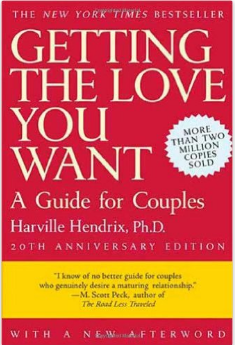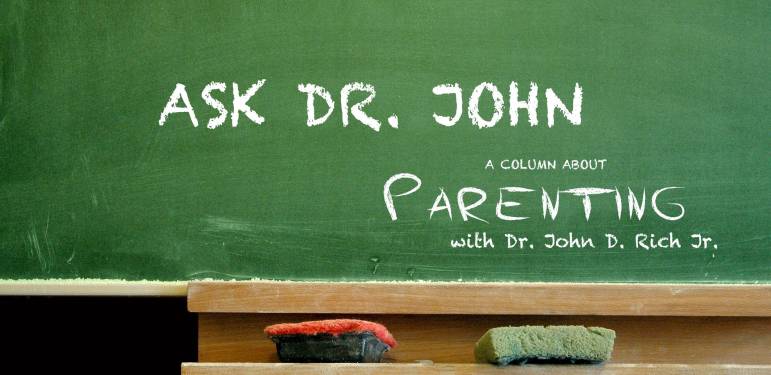
 As part of the outreach I do for my site, I have joined a number of facebook pages for parents. I have been struck by the large number of people posting details about their marital problems. One of the issues that frequently comes up in some of those pages is about staying together for the kids?
As part of the outreach I do for my site, I have joined a number of facebook pages for parents. I have been struck by the large number of people posting details about their marital problems. One of the issues that frequently comes up in some of those pages is about staying together for the kids?
One article that tries to address staying together for the kids is an article by Kelley Musick and Ann Meier, called “Are both parents always better than one?” In that study, the authors point out that the majority of studies about single parenthood compare single parents to two-parent families, without asking a key question – Is it better for the children to have two parents, even if the parents have a bad relationship?
The short answer to this question, according to their longitudinal study, is no.
Taking parenting conflict into account makes a big difference in discussions about staying together for the kids. “Children whose parents often argue score worse on measures of academic achievement, behavior problems, psychological well-being, and adult relationship quality; they are also more likely to form families early and outside of marriage.” [1]

High conflict marriages are also associated with higher rates of dropping out from high school, smoking, binge drinking, early sexual activity, nonmarital childbearing and lower grades. When children observe their parents arguing, attacking, insulting and yelling at one another, they can take it personally. Is it better to break up, or is staying together for the kids still the best option?
Well, the message is a bit more complicated than just saying that divorce doesn’t affect children. Of course it does. For one, single parents usually have less money than homes with two parents, especially if both parents work. Makes sense, right? And other research (which I’ll discuss in other articles to come), suggests that money enriches the lives of children, because parents can afford to sign their children up for classes and camps, and purchase items and experiences which are necessary for social connections to broaden.
Secondly, single parents have far more stress in their lives than happily married parents. There are time constraints, money constraints, and fewer people to help cover parenting needs when the single parent needs to work, play or just sleep!
For these two reasons, and many others, single parents can be less available for their children. They may be pulled in so many directions, and so anxious about the future, that their ability to deliver warmth and empathy may be affected. This is why, as a whole, children from single parent families “have higher poverty rates and lower levels of educational and occupational attainment than children who grow up with both their biological or adoptive parents. [2] They report greater substance use and risk-taking behavior, such as smoking, drinking, and drug use. [3] Further, these children are more likely to have sex at an early age [4], to be young and unmarried when they form their families [5], and to experience the dissolution of their own romantic unions. [6]”

Main message: Being in a high conflict marriage appears to be no worse than getting divorced. For many parents, divorcing a partner with whom there is no chance of a future may be better in the long run, because it eventually allows both parents the freedom and time to focus on the children again. A friend of mine (we’ll call him Jake), who was in a marriage that was going nowhere, would regularly fill his time up with work, chores, and eventually, an affair, in order to avoid the conflicts that were a regular part of being at home. After Jake’s affair was outed, he and his wife divorced. Looking back on it now, several years later, his opinion is that he is a far better father.
In Jake’s view, his children gained a second parent through the divorce that they effectively were missing out on while the marriage struggled. Although he readily acknowledges that a household with two parents in a healthy marriage is ideal, he characterizes divorce as the better option between two imperfect situations – when the two parents remain engaged in their children’s lives post-divorce. Indeed, Jake has advanced a view that staying together “for the kids” is sometimes a cop-out, taken because the process of divorce is difficult, embarrassing, and costly. In addition to wanting to avoid the difficulty of the divorce process, parents may also be anxious about the incredible amount of energy and focus that will be required to remain a real and present, engaged and influential parent after the divorce.
Now, all of that said – most people get married with the idea that they are going to stay together forever. The dissolution of this dream is heartbreaking. When a marriage is falling apart, sometimes, both partners want desperately to try to make it work. If you are in this situation (barring abusive situations), I’d encourage you to try. Even though divorce is no worse for the children than being in a high conflict marriage, a marriage that is loving, or at least civil, is definitely better for the children. Staying together for the kids is, in my opinion, the correct choise if the parents can find a way to make it work.

So — how might we make it work?
The question about staying together for the kids comes from a place of despair and helplessness; in many cases, long years of trying to get a husband to listen, or get a wife to respect him. Arguments are not isolated topics which need to be negotiated, but just one more example of “why I am unhappy.” You start out arguing about why the kids ate all the cookies, and somehow, you end up yelling and insulting each other about that time he stayed out all night and came home smelling like Dulce and Gabbana.
A marriage that started out so fabulously, with so much good will and optimism, is now so mired in darkness that the thought of divorce is a regular contemplation. In some cases, the children are the only reason the marriage is still intact, the weakest of glues holding a fragile ceramic figurine in one piece.
In a series of studies over many years, two authors named Dianne Holmberg and Joseph Veroff found that, as relationships change, memories change along with them. Some Adlerian therapists suggest that the ways we “spin” our memories of past relationship events is often a good indication of our current beliefs about the relationship.
“She looked so beautiful.”
“The flower arrangement was perfect.”
“I was so nervous that entire day, and then when I saw him standing up at the altar, I just started crying. I was so happy.”
“It was raining outside. There were puddles everywhere.”
“The best man wore these stupid socks with his tuxedo. I was embarrassed.”
“She forgot part of our vows.”
The first three vignettes might be associated with a happily married couple, while the last three are more likely the recollections of a couple who is struggling to survive.
Now in reality, the actual wedding days that are described in the quotes above most likely had positives and negatives. Almost every wedding day has a few glitches, a personality clash or two, and some details that don’t quite work out the way it was envisioned. For Adlerian counselors, what actually happened is unimportant. What is more important is how those memories are reorganized to give meaning to the present.
 In fact, almost all of our memories are faulty. Our brains have a limited capacity to remember every single detail of every single event with exact accuracy. In an effort at economy, the brain makes some executive decisions. Some memories, which are not necessary for surviving and thriving, are discarded (or perhaps just pushed far away from active consciousness) – What did you have for dinner last Tuesday? What about the Friday before that? Chances are, unless last Tuesday and/or the Friday before that were special occasions, or days when something monumental happened, you can’t remember. We remember events that are necessary to remember, and let go of events that we can live without.
In fact, almost all of our memories are faulty. Our brains have a limited capacity to remember every single detail of every single event with exact accuracy. In an effort at economy, the brain makes some executive decisions. Some memories, which are not necessary for surviving and thriving, are discarded (or perhaps just pushed far away from active consciousness) – What did you have for dinner last Tuesday? What about the Friday before that? Chances are, unless last Tuesday and/or the Friday before that were special occasions, or days when something monumental happened, you can’t remember. We remember events that are necessary to remember, and let go of events that we can live without.
Another executive decision that the brain makes is to fit memory into a currently evolving script. If your husband cheated on you, you may be anxious that he will cheat on you again. You are incentivized to look for patterns and themes in his prior behavior that make sense of his adultery. A hurtful comment, a sideways glance at another woman, a new way of styling his hair – you remember these things that were previously forgotten. You are inclined to interpret those things as malicious.
Were those newly remembered observations clues that you should have picked up? You want to understand what has happened, and your memories of prior events match your anxieties.
Among married couples who are having trouble, as each partner communicates skepticism and resentment, and the other partner responds with insults and accusations, the unsettled and unresolved pain builds. Then one day, one partner begins contemplating the end of the marriage. In many cases, marriages which have taken this turn cannot reverse. Each person in the marriage is now prioritizing the protection of his/her individual self-worth over the well-being of his/her partner.
According to Newton and Kiecolt-Glaser, happily married couples have the benefit of higher levels of physical and psychosocial well-being than people without high quality social relationships. On the other hand, “unhappily married individuals are at greater risk of poor mental and physical health than are their happily married counterparts.” The authors point out that marital quality is not stable across the span of a marriage. There are highs and lows, and there are the times in the middle, where you are in a partnership responsible for the normal, everyday tasks of paying bills, going to work, taking the kids to parties, and buying the groceries.

The difference between those couples who navigate the low times through communication and conflict resolution, and those whose disappointments and antagonisms feed an escalating cycle of erosion, may be related to the development of what psychologists call a “hostility bias.”
In a relationship, a hostility bias is an inclination on the part of one or both partners to assume that the other person means them harm. When she comes home with some good news, and he doesn’t take the time to listen to her share it, does she assume that it’s because he doesn’t care, or is she willing to give him the benefit of the doubt? Perhaps he is distracted by something, and doesn’t realize how important it is to stop, look and listen?
When he comes home with a new shirt, and she says she doesn’t like it, will he become resentful, and interpret her comment as ridicule, or will he merely assume that she doesn’t like it and not take it personally?
In both of these examples, the first interpretation is relaxed and able to interpret a disappointing reaction as a mistake. When a marriage is stable and secure enough to weather disappointment, a partner can feel safe enough to ask for a “reset.”
She can say, “Hey! I’m trying to talk to you about something important that happened to me. Can you give me your attention?”
He can say, “Oh. Ok. Well, I really like this shirt. I think it looks good on me.”

This reset gives the other person a second chance to give the other what s/he wants. He can say, “I’m sorry. I am distracted by something. I’m listening now. Tell me about it.” She can say, “I agree. Now that I look at it again, it does look good on you.”
If the couple is mired in difficulty, and both partners are operating from a hostility bias, every disappointment is just another example of why it isn’t working out. And there isn’t enough good will to take the risk of asking for that reset. What if I ask him to pay attention, and he refuses? What if I ask for the compliment I want, and she laughs at me?
The cycle that the hostility bias perpetuates can be the end of the marriage if someone doesn’t step up and decide to end it. If the marriage is going to be saved, one person needs to have the courage to be vulnerable again, to ask for the compliment, to give the listening ear. Even though the other person doesn’t seem interested in making the marriage work, you can still decide to give again. You can decide to be the partner you want your own partner to be. If, deep down, underneath the dark patina of conflict and dissatisfaction, your partner wants to stay together, he may begin reciprocating your loving behavior. She may be willing to take the risk of opening up and being kind and caring.
Or she may not. She may have checked out of the relationship, and there is no turning back. He may have too many issues to reverse course. It’s always possible that only one of you is willing or able to keep things alive. Unless the relationship is abusive (in which case, I urge you to leave), if you want to, give it another shot. Be the person who steps in and says, “I’m going to break this cycle. I’m going to be the one who brings vulnerability back to this relationship.”

You may find that you teach her how to be married again. You may find that he responds with more escalation and hostility. As research scientists like to say, “Every result, is a result.” Continuing in the same unhealthy pattern is only going to continue to make both of you miserable. You might take the reins, and act like he is on your side, and means well, and he gradually meets you back inside the marriage. Or, you might put yourself out there, only to find that she isn’t willing to embrace the closeness.
If you’re willing to face the result of your effort, at least you will know what you should do next. It takes two of you to make it work, but it only takes one of you to start it.
Staying together for the kids? If the two of you can get back together, then by all means!
Good luck!
References:
[1] (Amato & Sobolewski, 2001; Booth & Amato, 2001; Booth & Edwards, 1990; Davies & Cummings, 1994; Emery, 1982; Furstenberg & Teitler, 1994; Grych & Fincham, 1990; Hanson, 1999; Jekielek, 1998; Morrison & Coiro, 1999; Musick & Bumpass, 1999)
[2] (Astone & McLanahan, 1991; Biblarz & Raftery, 1993, 1999; DeLeire & Kalil, 2002; Kiernan, 1992; McLanahan & Sandefur, 1994; Wojtkiewicz, 1993)
[3] (Carlson, 2006; DeLeire & Kalil, 2002; Hoffmann & Johnson, 1998)
[4] (Davis & Friel, 2001; Thornton & Camburn, 1989)
[5] (Cherlin, Kiernan, & Chase-Lansdale, 1995; Kiernan 1992; Kiernan & Hobcraft, 1997; McLanahan & Sandefur, 1994; Thornton 1991; Wu 1996)
[6] (Amato & DeBoer, 2001; Kiernan & Cherlin, 1999; McLanahan & Bumpass, 1988; Wolfinger 1999)

Dr. John D. Rich Jr. is an educational psychologist and associate professor of Psychology at Delaware State University, a retired United Methodist minister, a full-time husband and father of two sons. His articles appear in Psychology Today, and you can hear Dr. John every other Wednesday at 4:30 p.m. on the Matt Connarton Unleashed radio show on WMNH 95.3 FM. Also, check out drjohnrich.com for more info. Got questions? Dr. John will help you navigate. Reach him directly at info@drjohnrich.com.








